![]()


![]()

■ Vasyli dances alone on the street ( 25~26 ). Suddenly, someone shoots him dead and he collapses ( 27~28 ).
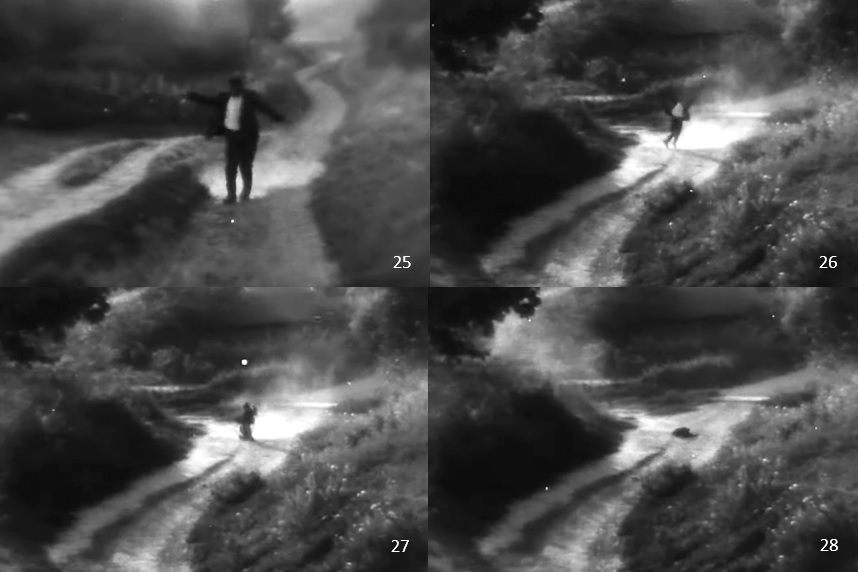
■ Vasyli's fiancée Natalya and Vasyli's father are grieving to see Vasyli's corpse ( 29~31 ). What is interesting about this sequence is that it is the sister ( 32, 34 ), rather than the father or Natalya, who is most grieved. This sister is played by Yuliya Solntseva, and it can be seen how Dovzhenko attempts to make her stand out.
■ It seems to us that if he had wanted it so strongly, he could have made her the wife of the leading man, Vasyli, but that would not have been possible for Dovzhenko, who was in love with Yuliya Solntseva. Perhaps it was Dovzhenko's human jealousy that made him unable to bear the thought of being someone's wife, even if it was in the movie.
■ This is not just a cursory intuition. For, perhaps, it was this overflow of human desire that prompted Dovzhenko to subconsciously turn away from the Bolshevik ideology that enforced "self-sacrifice" for the sake of the revolution. Dovzhenko could not give up his love for Yuliya Solntseva, who suddenly appeared in front of him. He could not do as Tymish ( Semyon Svashenko ) had done in "Zvenigora," in which he killed his wife who had been holding him back, and went to battle for the revolution. ( *B ).
( *B ) Refer to Chapter 7 of the following article.
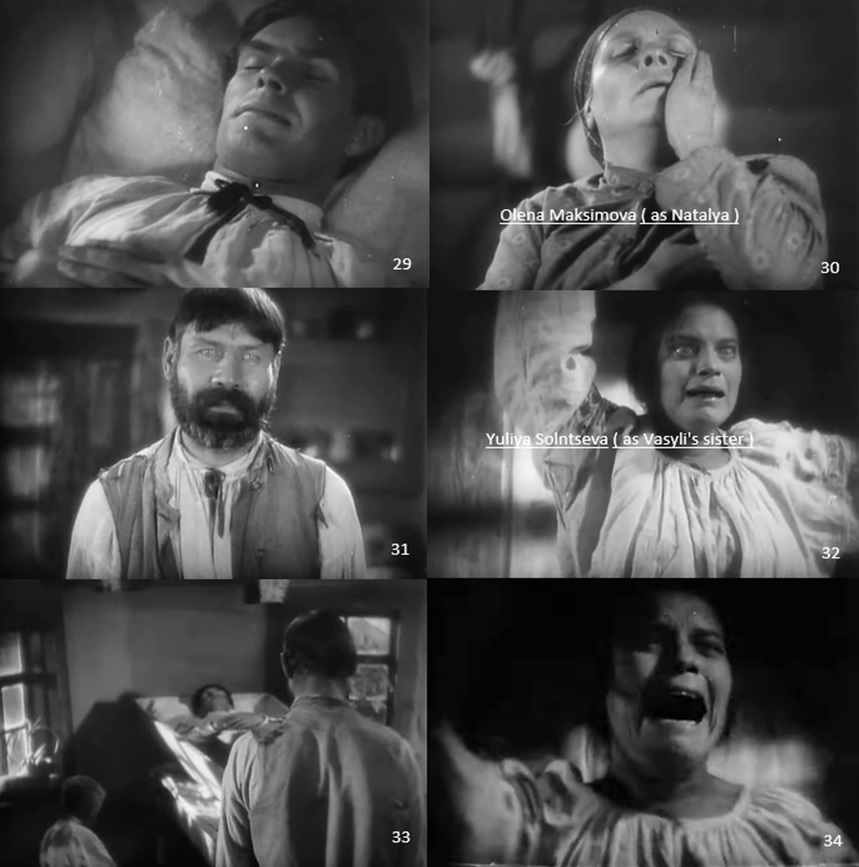
![]()

■ Many people attending Vasyli's funeral ( 35~37 ). This unusual collective agglomeration against one person should be carefully considered. Natalya, watching the funeral, realizes that she has given birth ( 38~40 ).
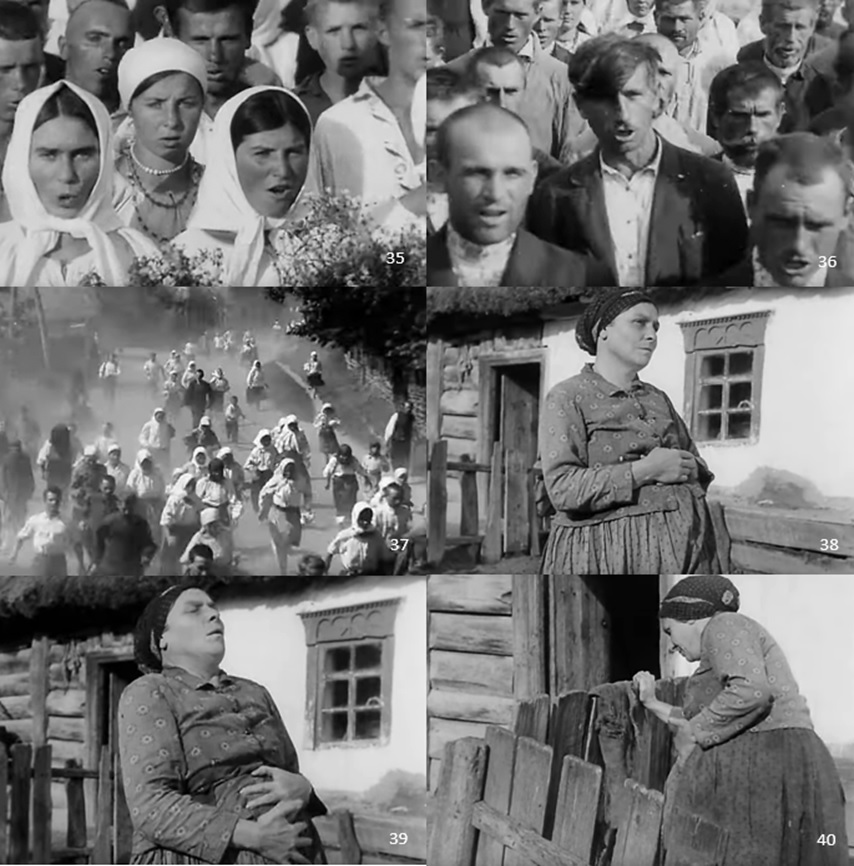
■ Homa watches the funeral from his home ( 41~43 ). His father is furious ( 45 ), probably because he knows that his son has killed Vaslyli.
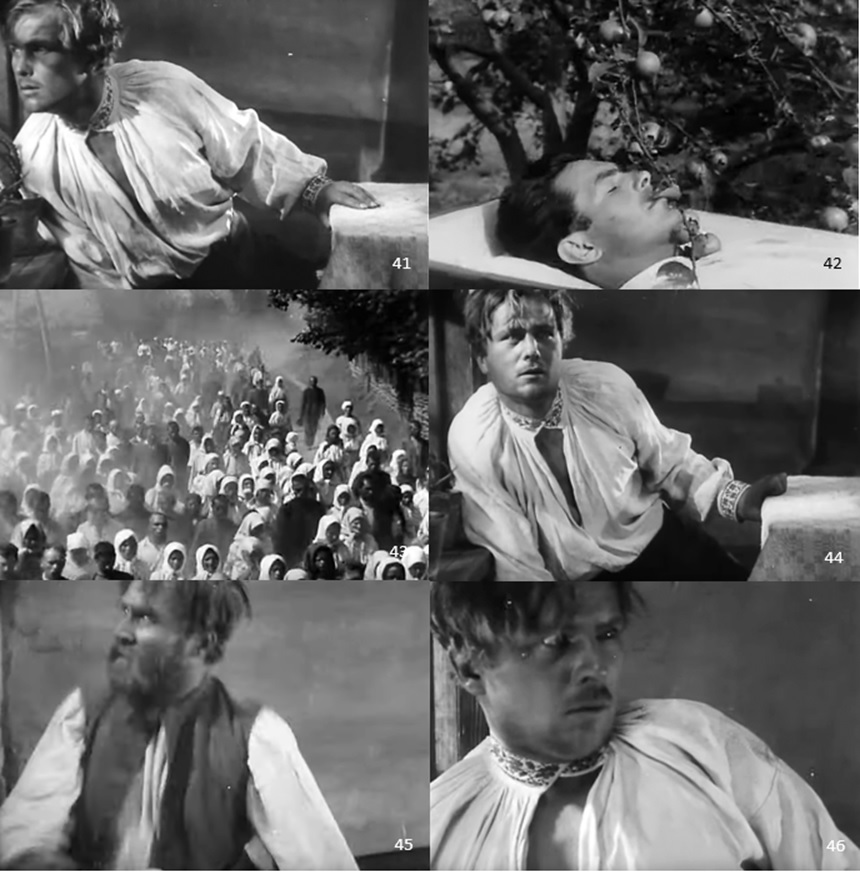
■ Homa, pushed by her father's fierceness, runs toward the others to confess her sins ( 47~48 ). A priest stands alone, having been denied entry to Vasyli's funeral because of his communist ideology ( communism is nominally irreligious ). ( 49, 51 ).
■ What should not be mistaken here is that the priest is not praying for Homa to be punished for the crime of murder, but for "the communist collective" to be punished for excluding religious acts even at funerals where many people gather.
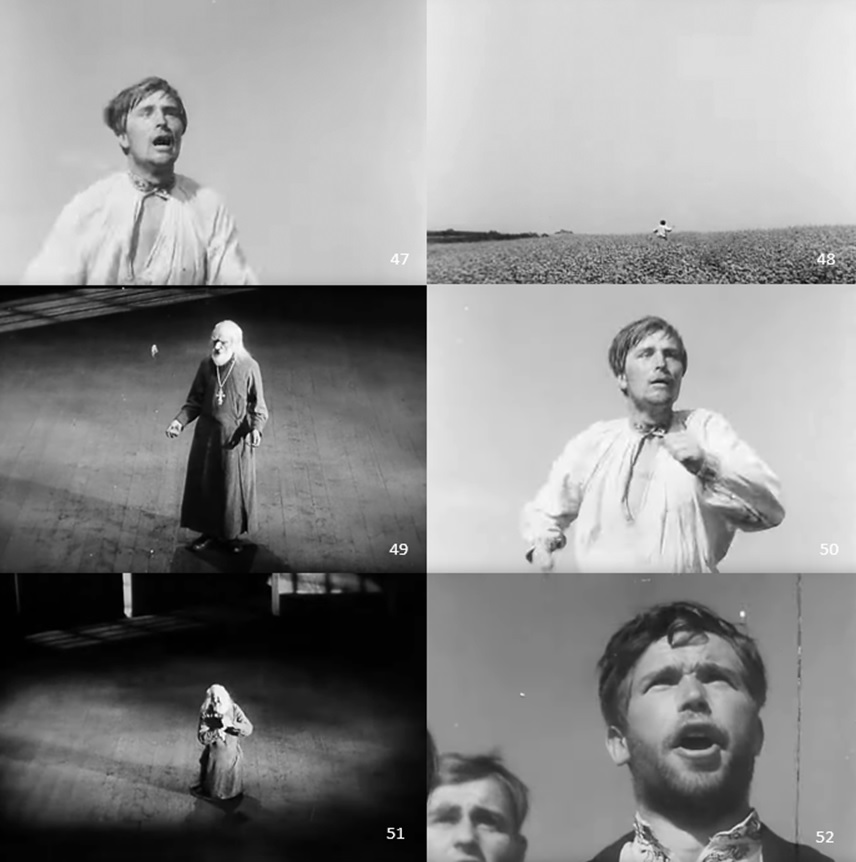
![]()

■ Natarya is about to give birth to a child ( 53,55 ). Vasyli's sister is watching over her ( 54 ). Homa running to the others ( 57,58 ). With Vasyli's funeral as the backdrop, the movement of three imagery is juxtaposed. From here, Dovzhenko beautifully depicts the convergence of three images, or at least of four images if Vassili's corpse ( 56 ) is included, into the "image of the earth" at the end of the film (87~90 ).
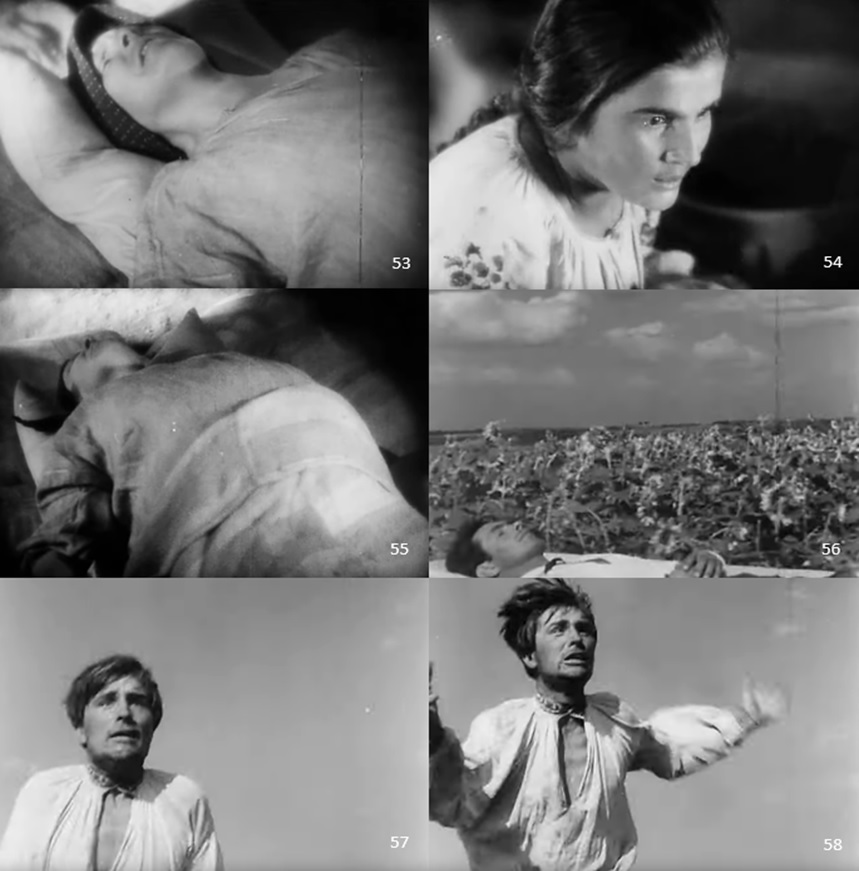
■ A sister tries to express her love for the late Vasyli through physical movement in the nude ( 59 ). It is clear from her hair that "the master of this behavior" is not Natarya, who is about to give birth to a child, but her sister, who is standing by Natarya's side ( Like the critic Рауль ХАУЗМАН : Raul Hauzman who explained EARTH, one would normally assume that it is Natarya, but it is not her ). This is Dovzhenko's direction for Yuliya Solntseva's highlight, but it can also be said to depict the symmetry of the sister who continues to hold on to her feelings for Vasyli, who is now dead and in the past, while natarya turns toward the new life to be born.
■ Similarly, Homa, who hesitates to confess his crimes in the presence of those at the funeral, also shows the symmetry as a man of the past who clings to the system that has been in place by killing Vasyli, who is pushing for collective farming for the future.
■ It should not be overlooked that the behavior of the sister and Homa, both of whom seem to be obsessed with the past as if they were going against a communist future, were played out over a single person, Vasyli. The sister loves Vasyli so much that she expresses it in full nudity ( 65, 67,69 ), and Homa hates Vasyli for trying to take it ( Earth ) away from him, because he loves Earth exclusively as his own, to the point of sticking his head in it ( 64 ).
■ The consequences are significant. Communism toward the future, under its collectivization system, pulls the soul and spirit out of Human, that is, the interiority of his lived past, and treats them only as formal political factors. As Vasyli is idolized in communism, the thoughts of his sister and Homa, who were involved in his life, are not even considered, but are even erased from existence. There is no Self in them, or in anyone else.
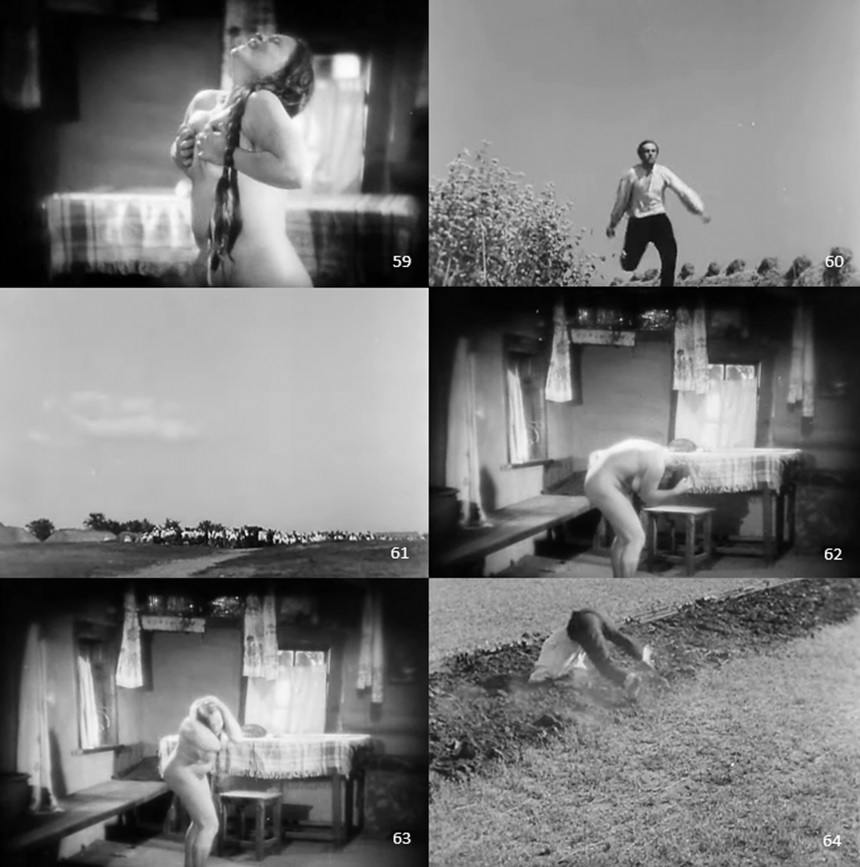
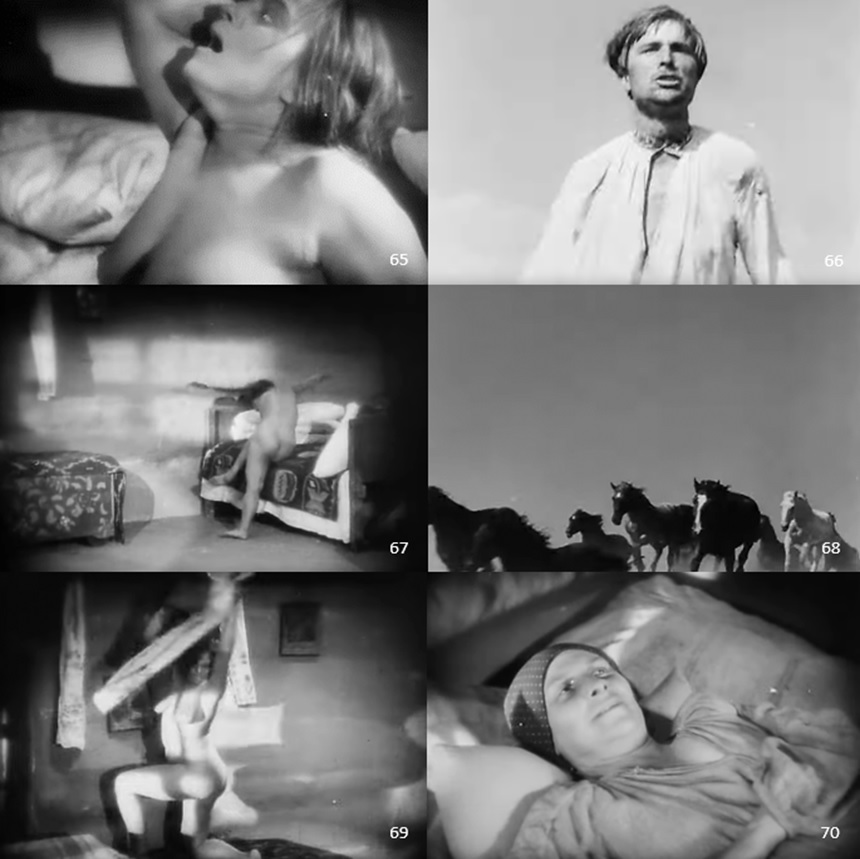
![]()
